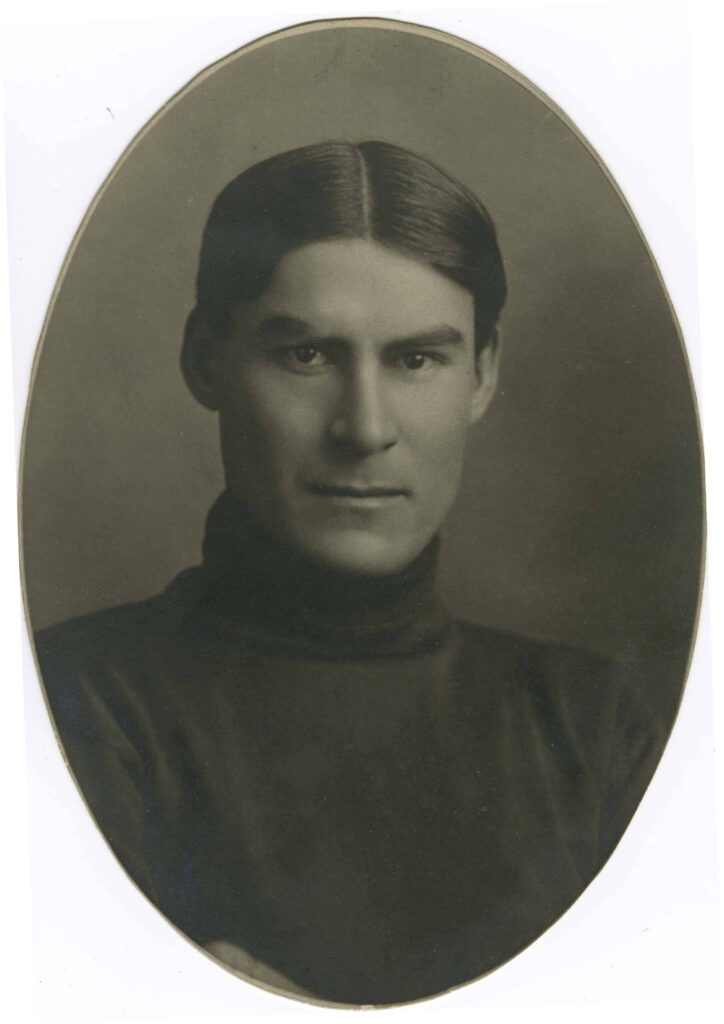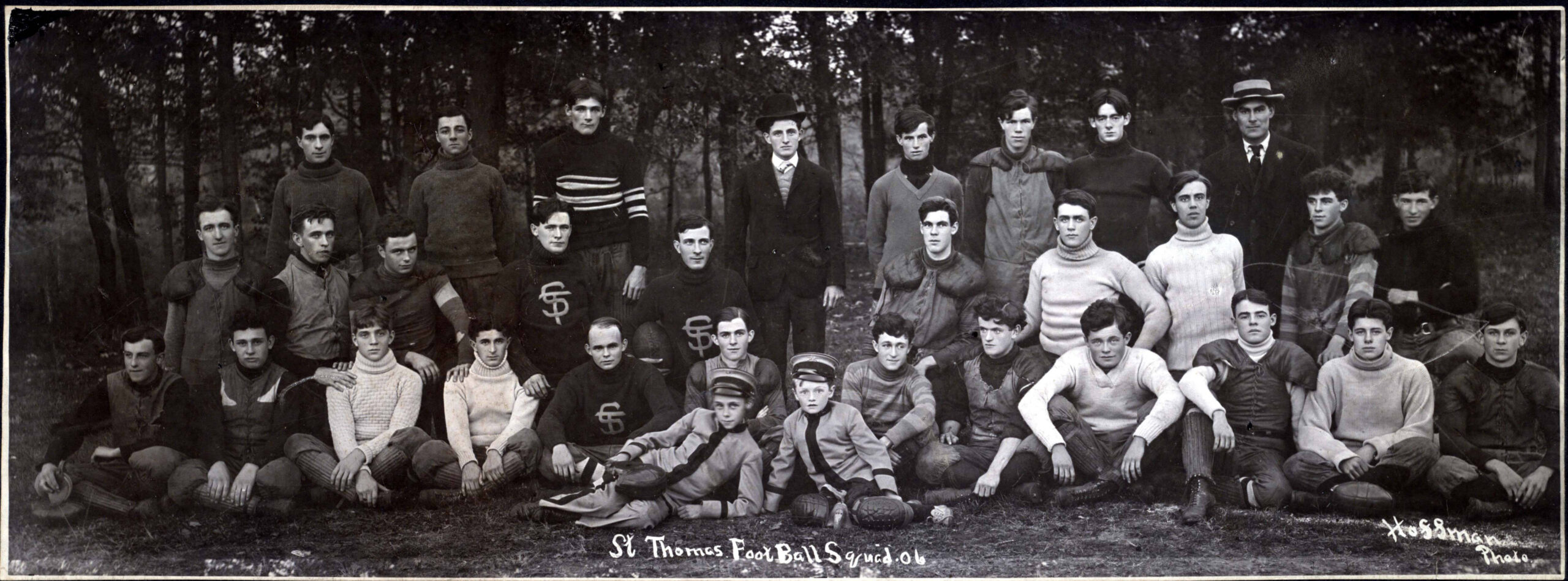As we celebrate Native American Heritage Month, it’s fitting to shine a spotlight on a remarkable figure from University of St. Thomas’ history – one of its first football coaches, Ed Rogers.
Edward Lowell Rogers was born in Libby, Minnesota, to an Ojibwe mother and a pioneering lumberman. His mother gave him the name Ay-Ne-Way-We-Dung, which translates to Echo in the Woods. Growing up in the Northwoods, Rogers’ childhood was immersed in the Ojibwe culture, and he spoke the Ojibwe language exclusively until he moved to Minneapolis at 7 years old to attend school.

In 1897, Rogers’ path led him to the Carlisle Indian School in Pennsylvania, a place infamous for its efforts to assimilate Native American students into mainstream American culture by erasing their cultural identities and enforcing the use of the English language. Despite these challenges, Rogers rose to prominence as a star athlete on the school’s football team, eventually assuming the role of team captain in 1900.
After his tenure at Carlisle, Rogers returned to his roots in Minnesota in 1901, enrolling in the University of Minnesota’s law school and joining its football team. In the 1903 season, he was named captain of the football team, leading it to an impressive 11-0-1 record and securing the Big Ten championship. His outstanding performance on the field earned him the distinction of being named a third-team All-American.
Upon completing law school in 1904, Rogers shifted his focus to coaching. He briefly returned to Carlisle, where he coached the football team for a year. However, in 1905, he returned to Minnesota, where he took on the role of coaching the College of St. Thomas football team. Under his guidance, the team achieved a notable 14-9-1 record. The pinnacle of his tenure at St. Thomas occurred in 1907 when his football team went undefeated with a 7-0 record and clinched the Intercollegiate and Independent Championships of the Northwest.

After his tenure at St. Thomas, Rogers redirected his energy toward his law practice, setting up his office in Walker, Minnesota. In 1910, he was elected Cass County attorney, a position he held for over 45 years. In a letter he wrote to the Carlisle superintendent, Rogers outlined as his mission “to show in a slight way how an Indian may hold the confidence of the people amongst whom he lives.” In 1912, he was elected as the chief of a council including 10 Ojibwe tribes.
In his later years, Rogers continued to be a beacon of leadership within the Native American community. He served as the vice president of the National Council of Indian Affairs and proudly held a position as a charter member of the National Congress of American Indians. To honor his contributions as both a football player and coach, he was inducted into the College Football Hall of Fame in 1968 and later, the American Indian Athletic Hall of Fame in 1973.

More Tales from the Archives
-
Tales from the Archives: Lights, Camera, St. Thomas
People & Culture -
Tales from the Archives: Early Days of Computing at St. Thomas
Quotes from the Quad -
Tales from the Archives: NeighborFest
Quotes from the Quad -
Tales from the Archives: New Student Orientation
People & Culture







